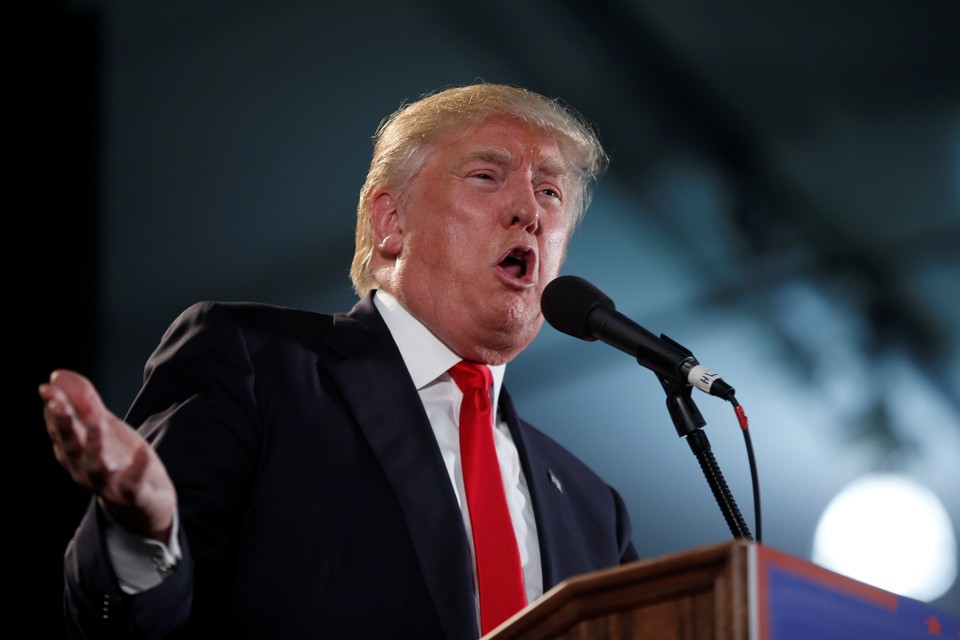
"The plaintiffs in Low and Cohen portray Trump University as a basically fraudulent endeavor, one that promised Trump’s secrets to real-estate success but instead dispensed generic advice for tens of thousands of dollars. They’ve amassed a collection of evidence and testimony that seems to support their claims. Trump strongly denies the allegations and often cities numerous positive testimonials the seminars received from former customers of Trump University.
In his public remarks, Trump appears to make no distinction between Low and Cohen. But there are crucial differences between the two civil class-action lawsuits. The Low plaintiffs sued Trump University and Trump himself under various consumer-protection laws in California, Florida, and New York—a relatively standard class-action lawsuit.
Cohen, on the other hand, targets Trump through a provision of the federal Racketeer Influenced and Corrupt Organizations Act, more commonly known as the RICO Act—the same statute federal prosecutors use to bring down mob bosses. In essence, Low accuses Trump University of engaging in fraudulent business practices, while Cohen frames Trump University itself as a criminal enterprise with Trump as the orchestrator of a racketeering scheme.
As you can imagine, Trump strongly opposes that characterization. In a motion for summary judgment in Cohen filed in March, he condemned the “pervasive abuse of civil RICO” that he says the case represents. “Indeed, if this case is allowed to proceed, it would represent an unprecedented and unprincipled expansion of civil RICO and transform virtually every alleged violation of consumer protection laws into a civil RICO claim,” Trump argued.
Beyond Curiel’s ethnicity, Trump’s most specific grievance against the judge is that he wrongly denied summary judgment in Trump’s favor. This assertion is only partially accurate. Trump asked Curiel for it separately in each case, filing the motion for Low in February 2015 and for Cohen in March 2016. The Cohen motion is still pending, with a hearing scheduled for July 18. Trump’s frustration likely springs from Curiel’s ruling against him last November on most of the Low summary-judgment motion.
Summary judgment is granted when both sides in a case agree on the facts. Under those circumstances, a jury trial becomes pointless since there aren’t any factual disputes for jurors to deliberate and resolve. The judge’s role when addressing a summary-judgment motion is to determine whether there are any factual disputes.
In Low, the plaintiffs’ case centers on three misrepresentations allegedly made to them by Trump and Trump University: “(1) Trump University was an accredited university; (2) students would be taught by real estate experts, professors and mentors hand-selected by Mr. Trump; and (3) students would receive one year of expert support and mentoring.”
When asking for summary judgment, Trump said he did not personally make these claims to the customers and never entered into any contracts with them. Therefore, he argues, he isn’t liable for them under state consumer-protection laws. The plaintiffs countered they were persuaded to purchase Trump University products by promotional videos featuring Trump and by print advertisements bearing his image and assertions about the program’s quality. Curiel denied the motion.
“Based on the foregoing, the Court concludes that Plaintiffs have raised a genuine dispute of material fact as to whether Mr. Trump can be personally liable for the alleged misrepresentations and misconduct,” Curiel wrote about one of Trump’s assertions. “For example, Plaintiffs have provided evidence that Mr. Trump reviewed and approved all advertisements. These advertisements included the alleged core misrepresentations, such as that Mr. Trump ‘hand-picked’ the instructors and mentors.”
This doesn’t mean Curiel sided with the plaintiffs on the facts of the case. It means that Curiel determined a factual dispute existed between Trump and the plaintiffs—nothing more, nothing less. He therefore denied summary judgment so a jury could weigh the evidence offered by each side and determine the facts of the case from it. Trump may not like Curiel’s decision, but it’s neither a surprising nor an egregious one."
Donald Trump's Desperate Attacks on Judge Gonzalo Curiel's Integrity? - The Atlantic
No comments:
Post a Comment